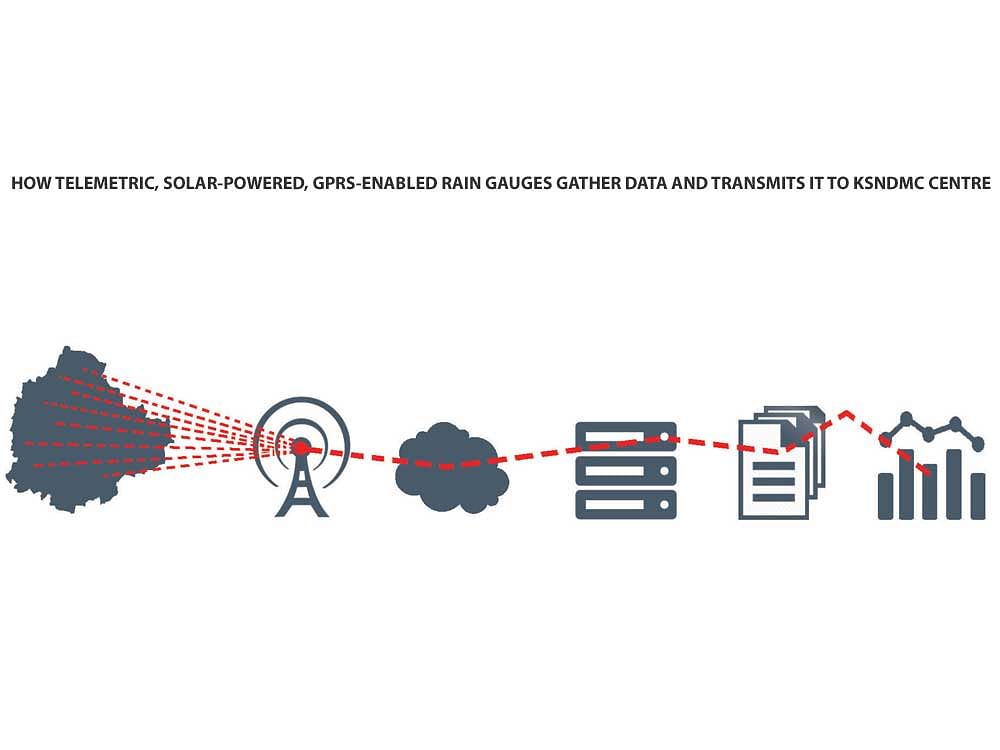
The rains this time around wreaked havoc in the city, and in certain extreme cases resulted in the loss of innocent lives. There has been a lot of discussion on the severity of rains particularly in the last two months, which effectively brought the city to its knees. Here's what a cross-section of people feel should be done to avoid a repeat of the disaster next year.
The enormity of the problem comes to the fore while interacting with people living in low lying areas that bore the brunt of the rain damage. B N Ratnakar from HSR layout says that the rains this time around were quite extreme and the city was ill prepared for it. He attributes it to the flaws of civic agencies such as the BBMP and BWSSB.
The technical flaws, he says, are plenty: Faulty routing of storm water, lack of proper de-silting of drains prior to the rains, excessive accumulation of garbage in the form of plastic and non-biodegradable items such as thermocol and construction material.
Ratnakar feels a comprehensive assessment of the drainage system could provide a solution to the problem along with an early weather warning system.
Asad Raza Nasser, a resident of Ejipura says the rains started late this year and most of it was seen during the last few weeks. For him, commuting proved to be a major trouble during this time as the roads apart from being flooded were also dug up in many places. He says the authorities were not at all prepared and the drainage system is at most unreliable.
Pradeep Krishnamurthy, however, feels that the authorities alone cannot be blamed as the city saw unprecedented rains this year. According to him, people contributed to the mess as well by dumping garbage at major choke points and many commercial establishments. Residential houses have blatantly encroached storm water drains, he points out.
Suma Reddy says that although the rains were indeed unprecedented, this cannot be used as an excuse by authorities as they failed in taking necessary measures. De-clogging of drains and prior planning could have mitigated some of the havoc caused.
Tirumal Boppana feels back to back rains with no respite left no room for the soil to absorb the rain water. Over concretization, disconnected SWD network, garbage dumping, encroachments, reduced capacity of lakes and lack of rain water harvesting implementation are the causes, according to him.
Ishani Mishra, a New Horizon College lecturer staying in Indiranagar, feels the rainfall was excessive compared to last year and lots of trees were uprooted in her area. The chaos and damage affected students and teachers alike, disrupting their academic schedules. To avoid a repeat of the mess next time, she stresses on proper planning. An early weather warning system will contribute in a big way, she feels.
Poulomi Sarkar, a resident of BTM layout, says: “It rains every year, but not this much. I commute daily by walk, and especially at the Silk board junction it became very dangerous due to water logging and rash driving by people. The government must ensure timely completion of projects and focus on road maintenance.” She also insists on an early weather warning system.
Most people are certain that the focus of BBMP and BWSSB for the next season should be on ensuring proper and quick drainage of rainwater. Steps must be initiated immediately in this regard to avoid the same mess the next year. Besides, timely weather updates and a comprehensive early weather warning system available in developed cities, are must-haves for the year ahead.